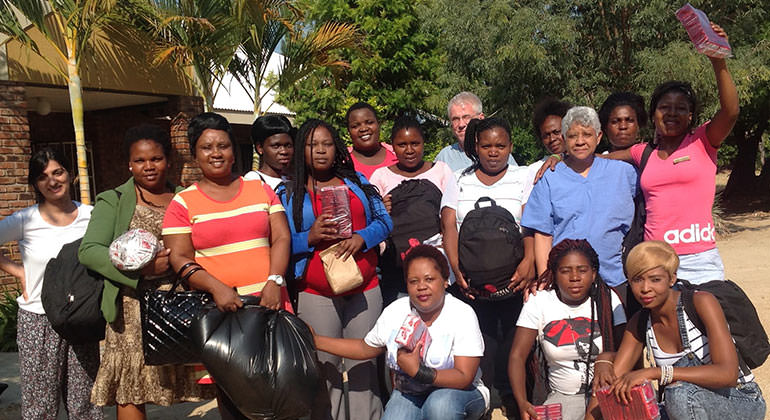Making a Difference in Underserved Regions

Mount Sinai’s Division of Global Women’s Health works with medical clinics and advocacy groups in underserved countries to provide women with access to much needed health services. We address health concerns through physician training, intervention, and medical treatment to make a positive impact in the lives of women who otherwise may not receive the care they deserve.
Africa
South Africa
The Limpopo province of South Africa is one of the most rural and poor provinces in the country, with a population of more than 5 million people, with about 80 percent who live below the poverty line. The unemployment rate, at 34 percent, is among the highest in South Africa. The most common sources of employment are agriculture and game parks, particularly for migrant workers coming from neighboring countries. Local research has found HIV prevalence to be higher in this province than in the general population—29 percent versus 16 percent.
Need for cervical cancer screening and treatment is high among this population because there is a known association between HIV and human papilloma virus (HPV), a precursor to cervical cancer.
In 2015, we incorporated cervical cancer screening for both sex workers and migrant farm workers within an established HIV treatment and prevention program at Hlokomela Clinic. We established a training program for local health workers to provide much needed cervical cancer screening and treatment using the “See and Treat” approach, visually assessing for abnormal cells and providing immediate treatment for any abnormalities.
Liberia
Maternal mortality rates in Liberia are among the highest in the world, with 1,072 maternal deaths for every 100,000 births (UN Women, 2017). Mortality rates are projected to rise as a consequence of the recent Ebola virus disease outbreak in 2014-2015, accounting for 1,347 deaths per 100,000 live births, the second highest in the world.
In addition, there is a critical shortage in health workforce capacity due to Ebola and recent civil wars. Without intervention, Liberia will never meet national workforce needs. To address this workforce shortage and maternal mortality, the Liberia Ministry of Health has contracted the Division of Global Women’s Health through funds from the World Bank to deploy faculty to train Liberian resident physicians. The Division has deployed general and sub-specialist OBGYNs and surgeons as well as an anesthesiologist, pathologist, and radiologists to Liberia.
Under the status quo, women in Liberia who develop cervical cancer will die. Cancer care, including diagnosis, treatment, and palliative care, is almost non-existent. We have helped to establish the first chemotherapy center in Liberia, where women with cervical cancer can receive treatment. We also have completed a Pap smear pilot program, where more than 1,000 women were screened. The program helped pave the way for the Ministry of Health to introduce the HPV vaccine into Liberia.
Community Involvement
Our residents and students have worked with local advocacy groups and clinics that are focused on public health projects, such as assessing intimate partner violence and sexual assault among gender and sexual minority populations in Monrovia.
South America/Caribbean
Colombia
In Cartagena, major gaps exist in maternity care due to lack of updated equipment and disparities in training. Additionally, adolescent pregnancy rates are extremely high; one out of every three teenage girls becomes pregnant, resulting in many unsafe abortions and increased maternal mortality and morbidity.
Through philanthropic funding from Fundación Vida Raquel K. Gilinski, ultrasound and electronic fetal monitoring units have been purchased, and workshops and simulations for technicians, obstetrical nurses, and physicians in the utilization of this equipment have been delivered by Mount Sinai faculty.
Dominican Republic
In the Dominican Republic, we collaborate with the Institute for Latin American Concern (ILAC) to address health care concerns in both rural and urban areas surrounding Santiago. Our doctors have traveled to 13 rural communities and screened more than 500 patients for gynecological and urinary conditions, such as pelvic masses, urinary incontinence, and Stage IV uterine prolapse. We have also collaborated with local physicians to educate and train numerous medical residents and students.